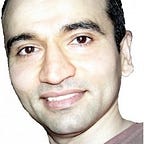Beyond Words: When Language Fails to Capture the ‘Real’
How Language Distorts the ‘Real’? Let’s Explore the Limits of Language
Navigating the vast expanse of human emotion often leaves words behind. For writers, artists, and poets, language sometimes falls short.
Emotions, with their depth and complexity, challenge mere words. Yet, this silence speaks volumes.
There’s an infinite realm of human emotion and experience that remains unarticulated, waiting to be explored and understood.
Let’s explore the realms beyond linguistic confines, where true essence often lies unspoken
The Linguistic Limitations
The limits of my language mean the limits of my world.
— Ludwig Wittgenstein, Philosophical Investigations
For writers and thinkers alike, language is the bridge between thought and manifestation.
Yet, its very structure has boundaries.
No word can truly capture the scent of the first rain, the feel of a lover’s touch, or the profound sorrow of loss.
Philosophers have often debated the adequacy of language.
Wittgenstein, for instance, alludes to the fact that our world is confined to the words we know and use.
Language is but a brush; reality is the vast canvas.
Artists and poets too, recognize this gap. They push boundaries, inventing new phrases, or relying on metaphors to convey their feelings.
Even so, complete expression remains an elusive pursuit.
The Silent Symphony of Art
Artists communicate in visuals, a medium where a single glance can invoke a plethora of emotions.
Sometimes, a painting or a sculpture says more than a thousand words ever could.
Picasso, an artist of legendary status, believed that through art, one can touch upon truths that are otherwise hidden.
Art is the lie that enables us to realize the truth
— Pablo Picasso
Scriptwriters and creative thinkers often collaborate with visual creators, understanding that their combined strengths can overcome individual limitations.
The symbiosis of word and visual transcends traditional linguistic barriers, creating a more holistic experience for the audience.
Yet, it is also in this silent symphony that one realizes the potential of words left unsaid, of stories hinted at but never explicitly told.
Poetry: The Dance of Words
The world of poets is one of intricate weaving of words.
They play with language, trying to capture the ethereal, the elusive.
Robert Frost, a poet who delved deep into the human soul, hints at the magic and mystery of poetry — suggesting that its essence can often be lost when parsed too closely.
Poetry is what gets lost in translation
— Robert Frost
Even though poets get closer to expressing the inexpressible, they often leave room for interpretation.
The beauty of poetry lies in its ambiguity,
its ability to mean different things to different readers,
transcending the rigidity of prose and touching souls in ways mere words often cannot.
Scriptwriting: The World Beyond Dialogue
Scriptwriters have the unique task of blending narrative with dialogue. They know that words are just one tool in their arsenal.
In movies or plays, what remains unsaid — the pauses, the glances, the silent tears — often carries more weight than verbose dialogues.
Scriptwriting — It’s a realm where the unsaid speaks louder, allowing thinkers and writers to create depth, emotion, and layers within a story.
Philosophers: Quest for the Absolute
Philosophy delves deeper than language dares to tread.
Philosophers are perennial seekers, trying to understand the underpinnings of existence and reality.
Yet, they too stumble upon the limitations of language.
Wittgenstein, in his groundbreaking works, acknowledged these very limitations.
Whereof one cannot speak, thereof one must be silent.
— Ludwig Wittgenstein, Tractatus Logico-Philosophicus
For philosophers, the challenge is two-fold:
not only to understand profound truths
but also to articulate them in ways comprehensible to others.
This journey often leads them beyond words, into the realm of pure thought and contemplation
Can language stretch to encapsulate the unthinkable?
Profound existential questions, such as the nature of consciousness, the origins of the universe, or the limits of human understanding, challenge the very fabric of language.
In the vast cosmos of artistic expression, language has been our North Star. However, language, with all its richness, sometimes doesn’t encompass the full spectrum of human emotion and creativity.
We grapple with concepts that may be beyond the scope of our linguistic capabilities, forcing us to explore alternative avenues of expression, such as metaphor, symbolism, or even silence.
